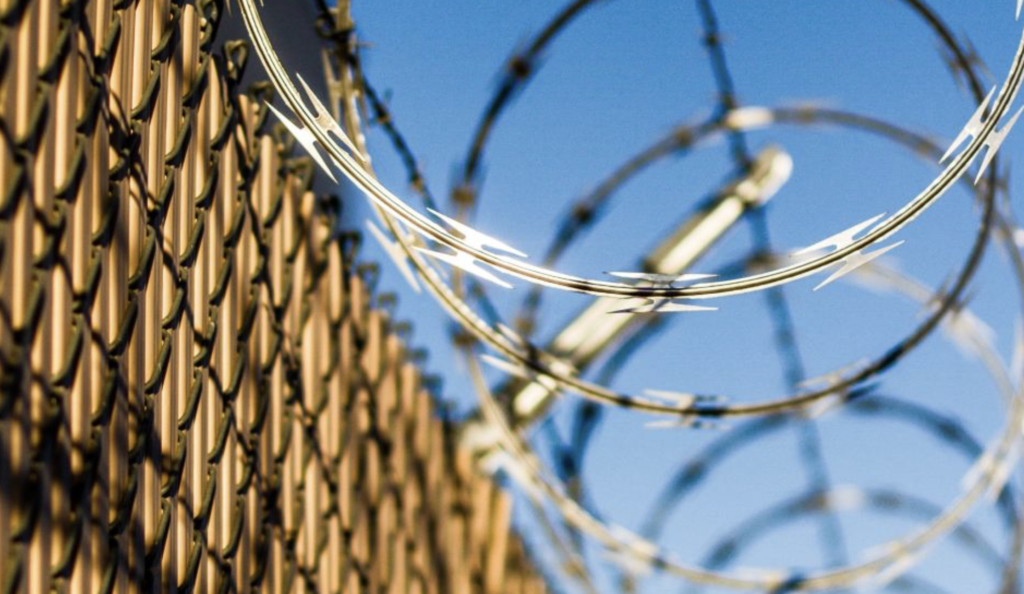Admittedly, this post is a departure from normal. But from time to time, I want to bring some awareness to important issues. More than awareness, I hope these posts challenge conventional thinking and spur some to take action. If we are leaders, we need to use our influence to improve the livelihoods of others.
Catherine Hoke is a leader who gets this. And her story has recently been challenging me. She is the founder of Defy Ventures, an organization of volunteers who work to provide leadership training and character development for incarcerated people she calls Entrepreneurs in Training (EITs). In her book A Second Chance, she tells the story of serving pizza at one of Defy Ventures’ EIT graduations. This, on the surface, is hardly worthy of a story. But one detail makes the story that follows an unforgettable one.
Hoke had no idea that eating pizza is forbidden in prisons.
Hoke goes on in the book to share the mistake she made (allowing volunteers to eat pizza in front of EITs after the EITs passed the pizza out), the drama of “Pizza Gate” that followed, and an unbelievable display of public accountability and forgiveness. These two chapters, located in the middle of the book, are breathtaking and worth the price of the book.
And at the very beginning of it, is a line that wrecked me: “One of our EITs had not had pizza in 30 years.”
I was listening to the book in the car on Audible when I heard this line and almost drove off the road.
At first I got angry.
What a stupid rule, I thought! They’re human beings! It doesn’t matter what they did in the past. They’ve just worked hard in an Entrepreneurs in Training program and should be allowed to have a piece —ONE FRICKING PIECE—of pizza!
And then I fought back tears.
I didn’t cry—God forbid if Steve saw me me crying when he got out of his car to go into the office last Wednesday morning!
But, I felt the urge.
Do we really live in a world where people go away and don’t eat pizza for 30 plus years?
Really?
Here is the deal…
I am not arguing that some people do not deserve to be behind bars for the mistakes they have made. After all, I believe every action has a consequence. Having said that, I unapologetically believe in the worth of every human being because I believe in a Savior that died for every one of us.
Every. One. Of. Us.
More than that, it is apparent in listening to Hoke’s book, knowing a friend who went away for a time, and reading other books on this subject matter, that our prison system is completely broken. Recidivism —the rate in which individuals return to prison upon release—is alarmingly high.
There are also serious injustices.
At the risk of alienating even more of you, it is apparent that a disparity between races exists in terms of prison sentencing.
It is uncomfortable to write that last statement.
I even have friends who disagree.
But being a leader is about being uncomfortable. Especially, when there is an injustice.
I don’t know what my next move here is. Maybe I need to get involved in our church’s prison ministry? Maybe I need to financially support Defy Ventures?
I don’t know.
But I know this is a big deal.
I know I am not okay with someone not being allowed to have one piece of pizza after 30 years.
I know I am for justice, and advocating for those who cannot advocate for themselves.
I also respect your right in this country to disagree with me on this issue.
Unlike our current political debate, I won’t vilify you.
Just know that I felt strongly enough about this to write this post.
Every human being matters.
Every last one of them.
Even the ones behind bars.
(Note: I have written before about the power of language. Hoke intentionally calls the inmates in her program Entrepreneurs in Training in order to convey her belief in them and to affect the way they see themselves—as human beings with a successful future. In this post, I intentionally did not use the word “prisoner.” I dislike using the word because when I say it, it seems to connote a distance between me and that person and even a sense that the incarcerated person is below me.
And frankly speaking, I do not like feeling that way towards others, thus I remind myself of everyone’s dignity by calling them human beings.)

